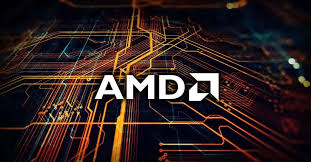
AMD steps up the AI race with a bold bet on Helios AI servers
At its “Advancing AI” event in San Jose, AMD CEO Lisa Su revealed a powerful new AI server platform named Helios, expected to launch in 2026. Built on the upcoming MI400 series chips, Helios directly challenges Nvidia’s stronghold in the AI infrastructure market.
The announcement comes at a crucial time. AMD is striving to position itself as a serious competitor to Nvidia, which dominates the global AI chip market with its proprietary systems.
MI400 Chips to Power Helios—AMD’s Big Bet
Helios AI server will integrate 72 MI400 chips, aligning it with Nvidia’s NVL72 platform. AMD executives said the platform would support open standards for networking, in contrast to Nvidia’s more closed NVLink approach.
AMD’s decision to make parts of the Helios architecture open for competitors like Intel marks a significant shift toward collaboration in the AI ecosystem.
Lisa Su emphasized this in her keynote:
“The future of AI is not going to be built by any one company or in a closed ecosystem.”
OpenAI Joins Forces with AMD for AI Innovation
Sam Altman confirms OpenAI’s support for AMD’s latest chips.
Joining Su onstage, OpenAI CEO Sam Altman shared that OpenAI is working closely with AMD on its upcoming MI450 chips. The goal is to fine-tune performance specifically for large-scale AI workloads like ChatGPT.
Altman said:
“Our infrastructure ramp-up over the last year… has just been a crazy, crazy thing to watch.”
Big Names Back AMD’s Vision
Executives from Meta, Elon Musk’s xAI, and Oracle also spoke at the event. Each company discussed how they’re using AMD hardware to power AI development. Additionally, Crusoe, a specialized cloud provider, has committed $400 million to purchase AMD’s new chips.
These endorsements show growing trust in AMD’s ability to build scalable AI hardware solutions.
AMD’s Expanding Ecosystem: From Chips to Full AI Systems
AMD isn’t stopping with chip design. It has recently acquired ZT Systems, allowing it to manufacture full server systems. AMD also brought in the core team of Untether AI and multiple staffers from Lamini, a generative AI startup.
The company says it made 25 strategic investments over the past year to strengthen its AI roadmap.
Software Still a Challenge, But ROCm Is Evolving
While AMD’s hardware is catching up, the ROCm software ecosystem still trails Nvidia’s CUDA in adoption and ease of use. But AMD says improvements are underway, especially as more partners start using ROCm in real-world workloads.
Despite export restrictions to China, AMD forecasts strong double-digit growth in its AI chip segment this year.
AMD’s AI Journey Just Got Real
The launch of Helios and partnerships with industry leaders could finally push AMD into the mainstream AI server space. While the market is still dominated by Nvidia, AMD’s open approach and strategic collaborations make this a moment to watch.
With 2026 set as the release year for Helios, the AI hardware race just got more competitive—and more open.
Source: Reuters
